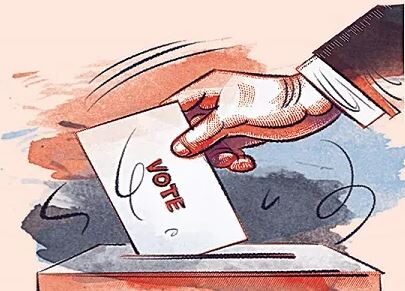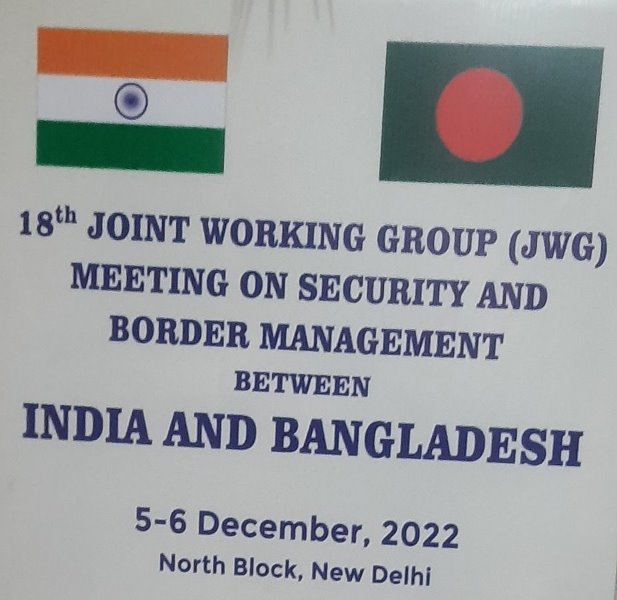Being a votary of needonomics, I wish to justify electoral reforms including simultaneous elections in the national interest of Federal Bharat. To strengthen democracy from the right perspective, we need to put a two-term limit for the prime minister, chief minister and leader of opposition and also retirement age which will facilitate a wider range of political leaders
 KRC TIMES Desk
KRC TIMES Desk

Madan Mohan Goel
Being a votary of needonomics, I wish to justify electoral reforms including simultaneous elections in the national interest of Federal Bharat. To strengthen democracy from the right perspective, we need to put a two-term limit for the prime minister, chief minister and leader of opposition and also retirement age which will facilitate a wider range of political leaders to prove their potential faithfulness towards the voters. Implementing a two-term limit for the Prime Minister, Chief Minister, and Leader of the Opposition in Bharat could indeed strengthen democracy from multiple perspectives. To support the election reforms including simultaneous elections in a federal Bharat with three-tier government structures can be justified through several key points:
Introducing term limits encourages the rotation of leadership like Rotary International, preventing the consolidation of power within a single individual or party for an extended period. This rotation fosters a more dynamic political landscape, allowing new leaders and ideas to emerge, which is crucial for a healthy democracy.
Incumbent leaders often enjoy significant advantages in elections, including greater name recognition, access to resources, and administrative machinery. Term limits help level the playing field by ensuring that no individual or party can monopolize power indefinitely, thus promoting fair competition and enhancing democratic participation.
Term limits foster greater accountability among elected officials, as they know they have a limited time to deliver on their promises and fulfill their responsibilities. This can lead to more transparent governance, as leaders are incentivized to act in the public interest rather than focusing solely on reelection efforts.
Without term limits, there is a risk of leaders becoming entrenched in power and potentially drifting towards authoritarianism. Moreover, dynastic politics, where power is passed down within families or political elites, can undermine democratic principles of meritocracy and equal opportunity. Term limits help mitigate these risks by ensuring regular turnover of leadership positions.
Term limits create opportunities for a wider pool of political leaders to emerge and demonstrate their capabilities. This promotes meritocracy within the political system, as leaders must prove faithfulness and effectiveness within a limited timeframe. Additionally, term limits incentivize parties to invest in talent development and succession planning, leading to a more robust and diverse leadership pipeline.
Rotating leadership through term limits encourages policy innovation and adaptation to changing circumstances. New leaders bring fresh perspectives and ideas to governance, stimulating debate and experimentation in policy formulation. This dynamism is essential for addressing evolving challenges and opportunities in a rapidly changing world.
By promoting change in leadership and preventing the concentration of power, term limits help build trust in democratic institutions among citizens. When people see that leaders are subject to democratic norms and principles, they are more likely to have confidence in the fairness and integrity of the political system as a whole.
To hold elections at different levels of government at different times can be financially burdensome for both the government and political parties. Meaning thereby bad economics as well as politics but democracy needs checks and breaks. Simultaneous elections consolidate resources and efforts into a single event, reducing overall election expenditure leading to cost efficiency. Frequent elections can lead to political instability and policy discontinuity, as changes in leadership …






